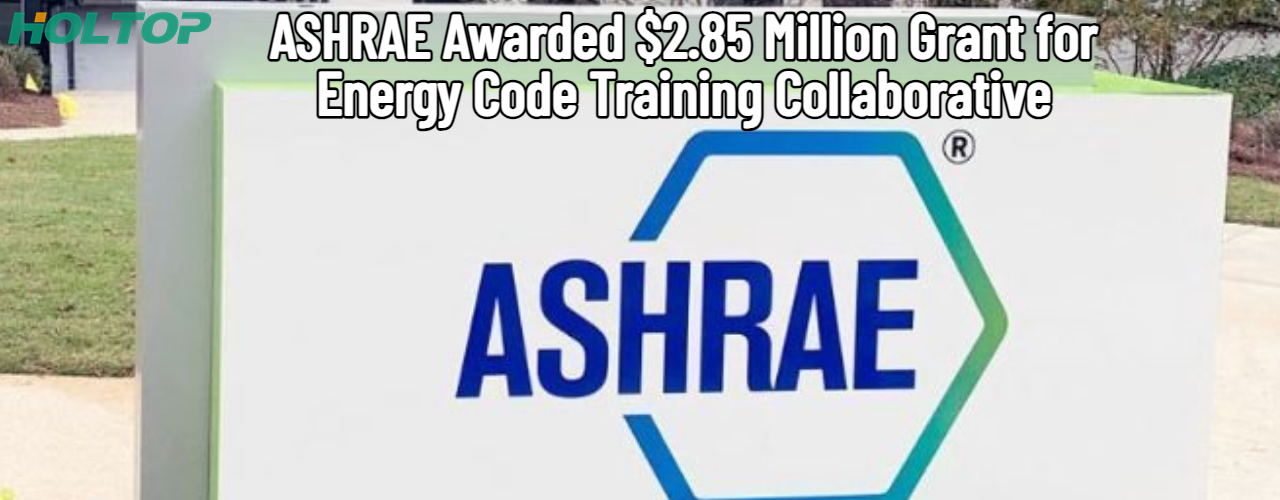
ATLANTA (July 13, 2023) – ASHRAE, along with seven partnering organizations, announced that it has been awarded a $2.85 million grant from the U.S. Department of Energy Building Technologies Office for Resilient and Efficient Codes Implementation (RECI). RECI is a product of the Infrastructure Investment and Jobs Act, which provides an opportunity to advance the efficiency and resilience of buildings through successfully implementing updated energy codes in states and local jurisdictions throughout the United States.
The program invests $225 million over five (5) years, encompassing fiscal years (FYs) 2022 through 2026, to “enable sustained cost-effective implementation of updated building energy codes.”
The award will fund the “Energy Code Official – Training & Education Collaborative” (ECO-TEC), a project led by national model code organizations, ASHRAE and the International Code Council (ICC), with vital support from the National Association of State Energy Officials (NASEO) and agencies from the states of Oregon, Michigan, New Jersey, and West Virginia.
The ECO-TEC will increase energy code enforcement activities through a multi-module training targeted to building energy code officials (ECOs). An important component of the project will include connecting with disadvantaged and rural communities through new communication channels to expand the workforce and providing career opportunities to those populations through training stipends.
The impacts from the project are expected to save the four state partners approximately $18.5 million over the course of the project. This impact reflects the difference between “Standard” and “Improved” compliance and assumes that the partner states adopt the latest model energy codes. The potential savings for 48 states (minus CA and WA) with “Improved” to “Aggressive Compliance” using their current codes range between $12 to $41 million in year one and $149 to $335 million by year five. “Improved” to “Aggressive Compliance” would also prevent between 0.06 MMT (million metric tons) to 0.20 MMT of CO2 emissions in year one and 0.81 MMT to 1.77 MMT of CO2 in year five. Program effectiveness will be evaluated to ensure sustained compliance and impacts.
Partnership leaders shared support for the project.
“The ECO-TEC will significantly contribute to advancing energy efficiency and resilience in our buildings, ultimately leading to a more sustainable future. By empowering code officials and professionals with the necessary knowledge and skills, we can effectively transform the built environment and promote sustainable practices nationwide. We are thrilled to partner on this important project.”
Jeff Littleton, Executive Vice President, ASHRAE and Principal Investigator of the ECO-TEC
“We are excited to be a partner in this exciting project that will address an identified need for energy code training and expand the availability of training resources to improve energy code compliance.”
· Gabe Maser Senior Vice President, Government Relations, International Code Council
“The longtime NASEO – ASHRAE partnership continues to advance our shared energy efficiency and resilience goals. Through the ECO-TEC project, we will expand our joint work to assist State Energy Offices and other state and local agencies in advancing cost-effective building energy code implementation. NASEO and our members value the expertise and leadership that ASHRAE, the participating State Energy Offices, and other project partners bring to this important activity.”
· David Terry, President, NASEO
“As the state’s sole construction code adoption authority, LARA works collaboratively with ASHRAE and the International Code Council in the development and implementation of energy and other related construction codes.
LARA recognizes the critical importance of timely code adoption, and further for addressing the needs of local jurisdictional inspectors, builders, and design professionals in education and training as new codes are adopted.”
· Andrew Brisbo as Director of the Bureau of Construction Codes, Michigan Department of Licensing and Regulatory Affairs
“New Jersey recently adopted the 2021 IECC residential and ASHRAE 90.1 commercial building energy codes. Providing training opportunities to new and current officials for enforcing these codes through this grant, especially in overburdened communities, will be instrumental in meeting the State’s energy and equity goals.”
· Stacy Ho Richardson Deputy Director, Division of Clean Energy, New Jersey Board of Public Utilities
“Our strategic engagement team will support efforts to build awareness of the project and further the goals of the community benefits plan to support diverse and equitable deployment of these valuable resources within our state.”
· Janine Benner, Director, Oregon Department of Energy
“The Oregon Energy Efficiency Specialty Code, utilizing ASHRAE 90.1-2019, is the energy code for all buildings constructed under the commercial building code. The Division recognizes that increasingly complex energy codes require training resources developed directly with ASHRAE. We are honored to be part of this team seeking federal support.”
· Alana Cox, Administrator Oregon Building Codes Division
“We are excited to be a partner in this exciting project that will address an identified need for energy code training and expand the availability of training resources to improve energy code compliance.”
· Karen R. Lasure, West Virginia State Energy Program Manager














